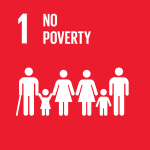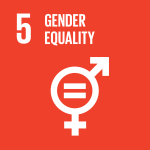
Photo:
Comoros faces serious water vulnerabilities due to its volcanic terrain, limited freshwater resources, and inadequate infrastructure. While some progress has been made, over 70 percent of households still rely on unsafe water sources for their daily needs.
To address this, the Comorian government has set an ambitious target: achieving universal access to safe, reliable, and climate-resilient water supply by 2030.
The Increasing Access to Water Supply in Comoros (IAWASuR) project is a key step toward this goal. Aligned with the government’s Resilient Water Supply Action Programme (PARWS) and implemented in collaboration with UNDP, the project responds to the country’s growing water challenges, exacerbated by climate change, rapid population growth and environmental degradation.
IAWASuR focuses on strengthening climate-smart water governance, expanding access to safe drinking water, and promoting sustainable watershed management. It adopts an integrated approach that combines infrastructure development, ecosystem restoration, and capacity-building, with a strong emphasis on gender equality and social inclusion.
Building on past and current initiatives funded by the Green Climate Fund, this new LDCF-funded project aims to directly benefit 75,000 people across the islands of Anjouan, Mohéli and Grande Comore by restoring degraded watersheds, constructing climate-resilient water infrastructure, and enhancing the capacity of key institutions – including the National Agency for Civil Aviation and Meteorology (ANACM), the national water utility SONEDE, and local municipalities – to manage water resources sustainably.
- Community
- Municipality
- District
- National
- Local Governments
- National Governments
- Non-Governmental Organizations
- Private Sector Partners
- United Nations Development Programme (UNDP)
75,000 people across the islands of Anjouan, Mohéli, and Grande Comore (51% women)
- Government of Comoros
- Global Environment Facility (GEF)
- United Nations Development Programme (UNDP)
Expected outcomes
Outcome 1. Climate informed water supply management is decentralized and based on sound science and stable financing.
Outcome 2. Coverage of adequate and climate-resilient water infrastructure is increased.
Outcome 3. Watersheds are restored and managed to ensure continued resilient water supply.
Outcome 4. Project knowledge is managed, and project results are monitored and evaluated to foster learning, adaptive management, sustainability, and replication.
- Image

- Image

- Image

- Image

Comoros is acutely vulnerable to the impacts of climate change, particularly regarding the availability and quality of water resources. Extreme weather events—such as droughts and floods—combined with human-induced pressures like deforestation and unsustainable agricultural practices, are placing severe stress on freshwater systems. On the islands of Anjouan and Mohéli, rivers are drying up, and beyond major urban centres, access to safe drinking water remains limited. This has hindered both sustainable development and the growth of a resilient agriculture sector.
Between 2020 and today, access to drinking and irrigation water has improved from 19% to 41%. However, much work remains to ensure sustainable, climate-resilient, and equitable access for all.
The Increasing Access to Water Supply in Comoros (IAWASuR) project is part of a programmatic approach adopted by the Comorian government called the "Resilient Water Supply Action Programme (PARWS)" that has been agreed between the government and various donor agencies. PARWS aims to address the long-term water challenges in Comoros by implementing a series of climate-resilient water projects across the nation. This programme is to be implemented through various sources of financing and aims to provide drinking water to at least 60 percent of the Comorian population by 2028 through the construction of climate-resilient water infrastructure.
The project is based on the theory that if the integrated management of water, water infrastructure and ecosystem services is decentralized and based on reliable data, then resilient infrastructure can be scaled up to reach the most remote users, which improve access to sustainable drinking water for the most vulnerable local populations and strengthen the resilience of ecosystems and better protection of exploited watersheds despite climate change.
Building on lessons from the GCF-funded ER2C (implemented with UNDP) and GEF-funded RGIBV projects (implemented with UNEP), the IAWASuR project is grounded in a collaborative and inclusive implementation model that engages key institutional, community, academic, and private sector stakeholders. It promotes long-term sustainability and systemic transformation through decentralization, capacity-building, climate-resilient infrastructure, and ecosystem restoration.
Outcome 1. Climate informed water supply management is decentralized and based on sound science and stable financing.
Output 1.1 Legal and regulatory frameworks governing water management and distribution, as well as integrated water resources and watershed management, are downscaled and decentralized.
Output 1.2 Reliable climate and hydrological data are collected and made available at the local level.
Output 1.3 Sustainable financial mechanisms are in place to ensure the stable functioning of basic public services and water services.
Outcome 2. Coverage of adequate and climate-resilient water infrastructure is increased.
Output 2.1: Resilient water supply systems are installed and managed according to the principles of integrated water resources management.
Outcome 3. Watersheds are restored and managed to ensure continued resilient water supply.
Output 3.1 1,200 ha of degraded watersheds are restored and managed in an integrated and sustainable manner.
Outcome 4. Project knowledge is managed, and project results are monitored and evaluated to foster learning, adaptive management, sustainability, and replication.
Output 4.1. A knowledge management and dissemination system is established, and gender equality is mainstreamed to enable evidence-based decision-making and the scaling up of best practices.
Project-level monitoring and evaluation will be undertaken in compliance with UNDP requirements as outlined by UNDP’s established policies and procedures, including the UNDP Evaluation Policy.
The UNDP Country Office is responsible for ensuring full compliance with all UNDP project M&E requirements including project monitoring, UNDP quality assurance requirements, quarterly risk management, and evaluation requirements. Additional mandatory GEF-specific M&E requirements will be undertaken in accordance with the GEF Monitoring Policy and the GEF Evaluation Policy and other relevant GEF policies. Other M&E activities deemed necessary to support project-level adaptive management will be agreed at the outset of the project.
The project will produce an inception workshop report, annual project implementation reports (PIR), an independent mid-term review (MTR) and terminal evaluation (TE), with the final MTR and TE reports made publicly available on the UNDP Evaluation Resource Centre. GEF and/or LDCF core indicators will be used to monitor global environmental benefits.
A final project report package will be discussed with the Project Board during an end-of-project review meeting to discuss lessons learned and opportunities for scaling up.
Dorine Jn Paul, Regional Technical Specialist, Climate Change Adaptation, UNDP dorine.jn.paul@undp.org


